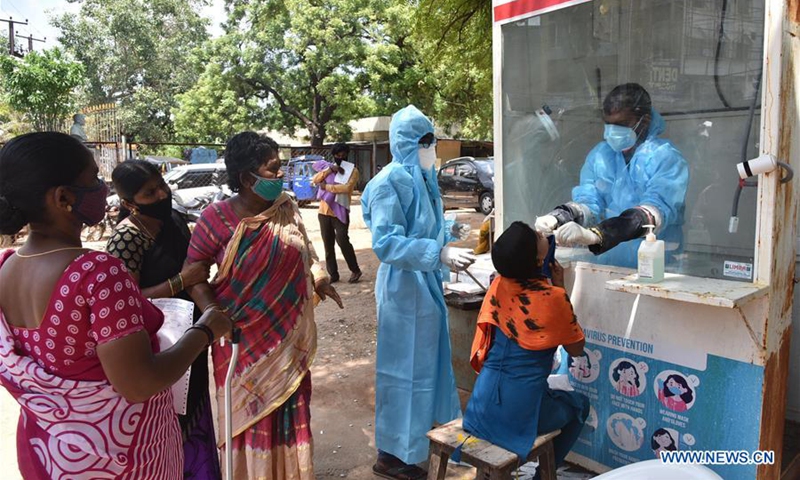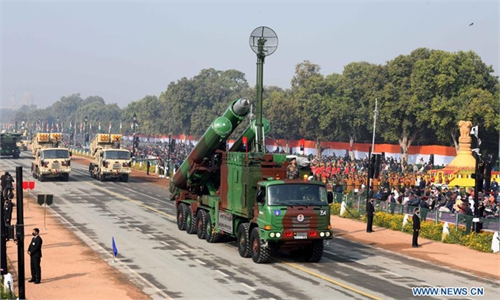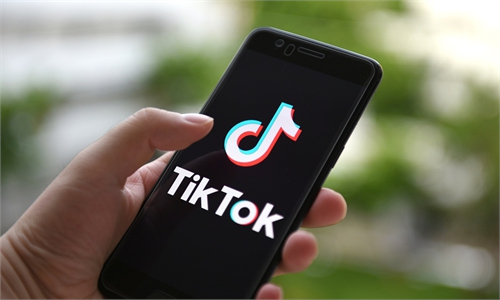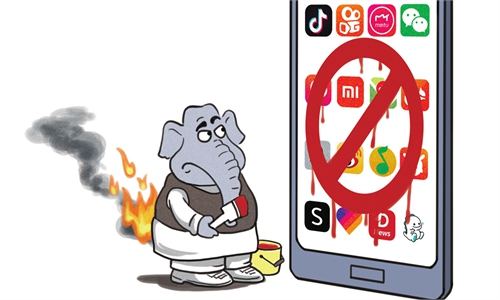
People wait in line to take COVID-19 test at a health centre in Hyderabad, India, on July 29, 2020. India's COVID-19 tally crossed the 1.5 million-mark on Wednesday, reaching 1,531,669, announced the federal health ministry. (Str/Xinhua)
More than one week has passed since India launched the reportedly "world's biggest inoculation program," for which it vowed to vaccinate 300 million people from high-risk groups by the end of July, however, some issues, especially the lack of confidence in its domestic vaccine, may prevent the country from realizing its ambition, observers said.
As the second most serious COVID-19 outbreak in the world following the US, the number of infections in India has exceeded 10 million as of Wednesday.
India has vaccinated more than 2 million high-risk residents in its first stage of nationwide mass vaccinations.
However, experts and sources reached by the Global Times warned that India's program probably would be seriously delayed due to low confidence and willingness of Indian people to accept vaccination.
Most Indians don't oppose being vaccinated. But India has access to two vaccines - Oxford/AstraZeneca's Covishield and India's domestic vaccine Covaxin. The first is more mature, while the second hasn't published its Phase III clinical trials data yet.
Local Indians cannot decide which one will be used on them, and some of them are worried if they will be injected with the second one, according to a Chinese working in New Delhi, who talked to the Global Times on condition of anonymity.
Bloomberg reported on Wednesday that some health care and frontline workers in India are hesitating because of safety concerns over a vaccine that has yet to complete Phase III clinical trials. As of Monday, only about 56 percent of people eligible to get the shot in India have stepped forward, according to the report.
The results of Phase I clinical trials on Covaxin were published in The Lancet magazine on January 21, which said that the vaccine led to tolerable safety outcomes and enhanced immune responses, but that further efficacy trials are warranted.
While some people eligible for vaccination hesitate to accept the injections due to a lack of confidence in the vaccines, others outside the high-risk groups who want the vaccine cannot get access to the vaccines, the anonymous interviewee in India said.
Along with mass vaccination, the Indian government has also been sending millions of free doses to neighboring countries, such as Bangladesh, Nepal, Bhutan and the Maldives.
Most of the vaccines India donated to other countries are Covishield rather than India-developed Covixin. Tian Guangqiang, an assistant research fellow at the National Institute of International Strategy of the Chinese Academy of Social Sciences, said this shows even the Indian government is not completely confident in its own vaccines.



